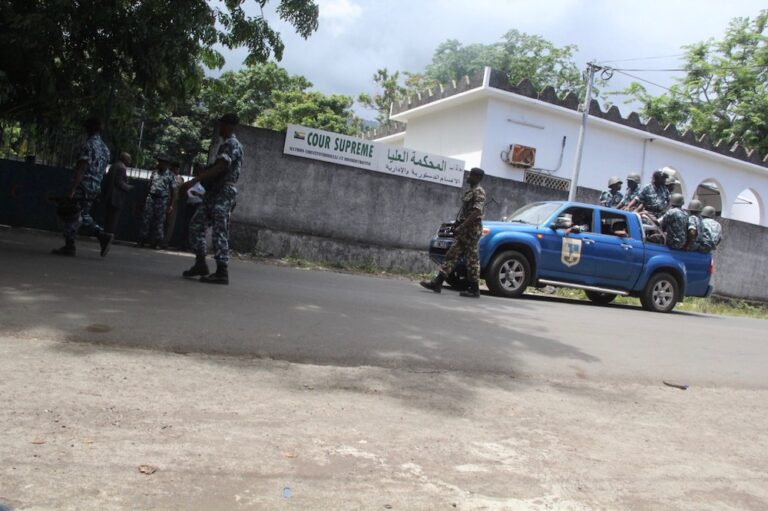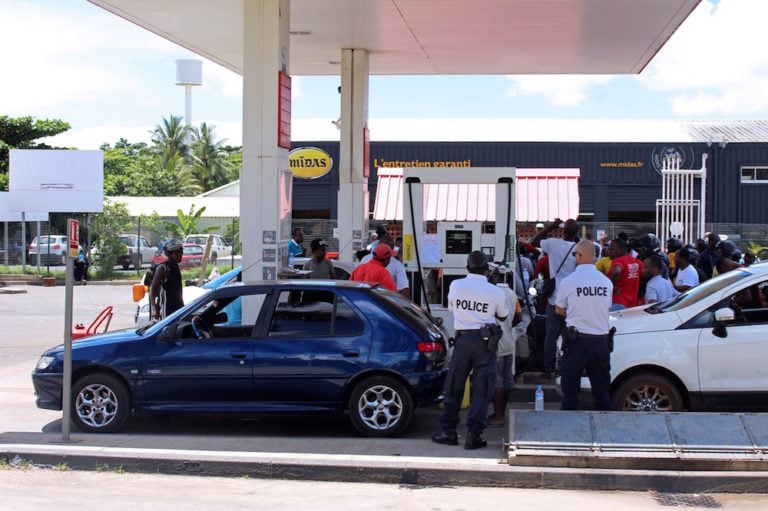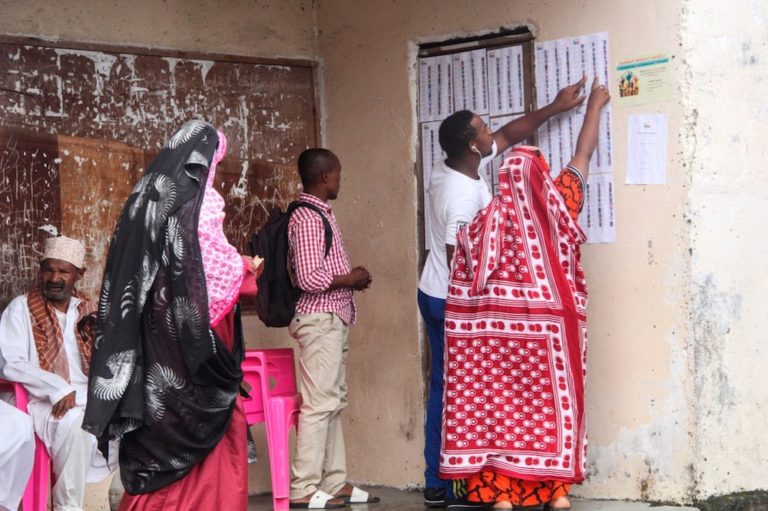(RSF/IFEX) – Tropic FM radio station director Cheikh Ali Cassim was released on 11 October 2001, after serving a fourteen-month prison term without parole. RSF believes the journalist was sentenced because of his opinions and should never have been incarcerated. The organisation recalls that in January 2000, United Nations Special Rapporteur on Freedom of Opinion […]
(RSF/IFEX) – Tropic FM radio station director Cheikh Ali Cassim was released on 11 October 2001, after serving a fourteen-month prison term without parole. RSF believes the journalist was sentenced because of his opinions and should never have been incarcerated. The organisation recalls that in January 2000, United Nations Special Rapporteur on Freedom of Opinion and Expression Abid Hussain stated that as a sentence for the peaceful expression of an opinion, imprisonment constitutes a “serious human rights violation.”
Arrested on 15 August 2000, Cassim was illegaly detained for forty-five days in a military camp before being transferred to the Moroni prison. Reached by telephone by RSF, he recalled that Tropic FM is the “only private radio station to produce news programmes,” and that the authorities do not appreciate his “direct [approach] to presenting news.” He also explained that his arrest may have been linked to his political activities.
Furthermore, RSF has asked the authorities to release Radio Karthala director Izdine Abdou Salam, who was placed under a committal order by the Moroni Prosecutor’s Office two days after his arrest, on 10 November. Salam has still not been informed of the charge against him. He is allegedly charged with defamation. He had hosted a debate on Radio Karthala about a constitutional proposal that will be the object of a referendum on 23 December. Several contributors had severely criticised the text on the air. The tapes of the programme were seized by the police. Salam has previously been sentenced for “defamation” against the prime minister, and the tribunal barred him from broadcasting political programmes.


